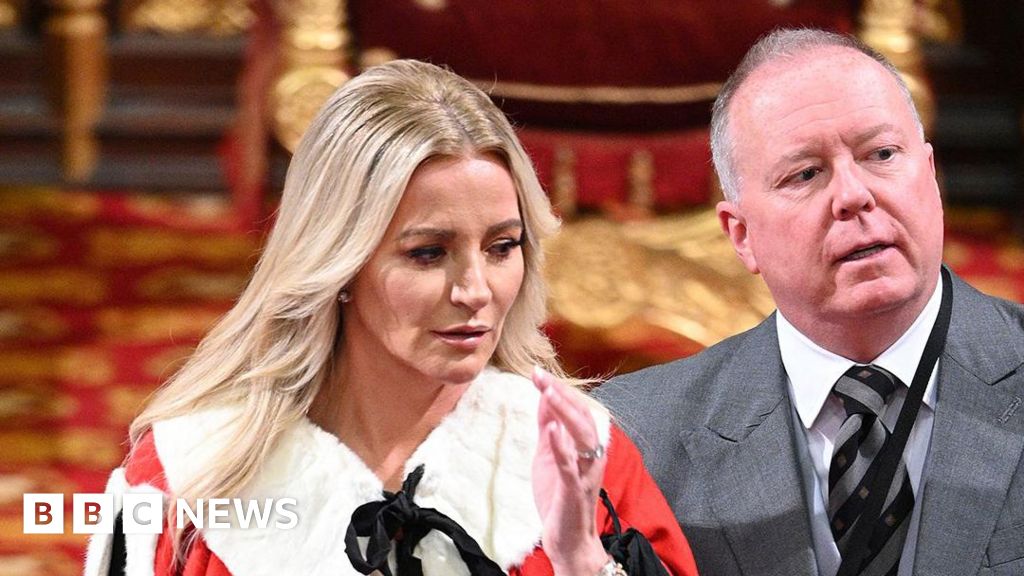Thank you for the story detailing the conditions and problems arising from the so-called Trump peace plan for Gaza (“Hostages and prisoners have been exchanged. What now for Gaza?” October 15). This made sobering but essential reading, although out of all the difficult questions raised, there was one with an obvious solution. The “estimated $53 billion” cost of clearing and rebuilding Gaza must come from the countries that provided the weapons and systems that enabled the destruction in the first place: Israel, America, Germany, Britain, Italy, Australia and others. It’s hard to see why Arab countries should be burdened with reparations for an appalling problem for which they are in no way responsible. Caroline Graham, Cromer

Credit: Cathy Wilcox
The definition of peace is a state of calm and harmony – free from conflict, violence or disturbance – both within oneself and among others. The peace brokered by Donald Trump is, for the moment, reassuring. It allows the world to pause from the vitriol that has long seeped from the Middle East. But the big question remains: how long will this pause last? Israel’s former prime minister, Golda Meir, once said, “We can forgive the Arabs for killing our children, but we cannot forgive them for forcing us to kill theirs. Peace will come when they love their children more than they hate us.” It would seem we are still a long way from that ideal. Christopher Woodley, Vaucluse
It was jarring to read David Crowe acknowledge that Israel is, in halving the 600 daily trucks of aid into Gaza, “punishing Palestinian civilians” (“Grisly video shows how Gaza peace can fall apart”, October 15). Rather than immediately dismissing and normalising this as “not new in this conflict”, we might instead be reminded that collective punishment of a civilian population and starvation are both war crimes and crimes against humanity. Australia must hold Israel to account for these ongoing actions; sanctions and cutting diplomatic ties might be a good place to start. Gabriella Bate, Newtown
Your correspondents correctly ask whether the ceasefire can actually achieve anything and lead to lasting peace (Letters, October 15). The answer is yes, it can, provided the Trump plan is adhered to by both sides. Most crucial is for Hamas to be disarmed and lose its power over Gaza. The world must be resolute in ensuring this happens. If, ultimately, Hamas can be removed from the picture and the Palestinian Authority can be sufficiently reformed so that Israel can be confident both no longer pose a threat to its security, there could potentially be a lasting two-state peace. The alternative, allowing Hamas to re-establish itself as an armed and controlling force in Gaza ready to spark more wars, is too horrible to contemplate. Danny Samuels, Malvern (Vic)
Failures of feminism
When American conservative activist Charlie Kirk was murdered, your columnist Jenna Price took it upon herself to traduce him as a “demon” who incited hatred and bad-mouthed everyone “who was not like him”. For his great immoral “crimes” of believing in God, the family and the importance to young men, and women, of old-fashioned notions of civic responsibility, fidelity and sexual continence, Price trashed this young father’s “demonic” masculinity even before his widow had buried him. So it takes the usual levels of “progressive” sanctimony, hypocrisy and selectivity for her to now, yet again, blame “useless men”, this time for the ills of our increasingly lawless education system (“Boys, men must learn to do better”, October 15). She is right to note that schools are now increasingly fraught environments for teachers, in which young men – and young women too, Jenna – are running wild. But there are very sane reasons why good men are avoiding a teaching career, and among them is the relentless low-level misandry of feminist commentators just like Price, for whom all social ills can be sheeted home to us useless men (at least white, straight, middle-class ones, anyway.) If Price wants more positive masculine role models in teaching, maybe occasionally she might lay off reminding boys just how crappy we men are, and even try criticising girls’ and women’s bad behaviour. Why, perhaps even modern feminism’s contributory failures, too. God knows no sane man would dare to try nowadays, but there are plenty for our female role models to pick from. Jack Robertson, Birchgrove

Teachers are leaving the profession in droves.Credit: iStock
Yes, Jenna Price, boys and men should learn to be better, but who is going to teach them and how? Why are there no comprehensive, systemic programs to teach boys how to be respectful, responsible and decent young men? As a former head teacher, I once suggested that the NSW Teachers Federation establish a men’s conference to discuss boys’ disengagement from education and their poor behaviour and attitudes because the annual women’s conference seemed to be ignoring the issues. The suggestion wasn’t appreciated. With men abandoning and avoiding teaching in droves, boys are being denied positive male role models. All society seems to be doing is holding up badly behaved and semi-sentient football “heroes” who only get a slap on the wrist when they abuse their partners. When I was a boy at an all-boys, public school, behaviour such as that described by Price would have resulted in instant expulsion. Parents must be taught to instil respect in their sons, and real and painful consequences for bad behaviour need to be put in place. Ryszard Linkiewicz, Woolaware
Jenna Price highlights, perhaps unwittingly, one of the unfortunate attitudes held in Australian schools that encourage gender inequality. When her daughter, a teacher, was addressed as “Miss” by one student, the offence was to mention her “arse”, which was obviously unacceptable. But instead of just “Miss”, if all women teachers were addressed by their surnames, eg. Miss Brown, or Mrs Jones, perceptions might change. All male teachers are addressed as “Sir”, while women of any age remain “Miss”. This is dystopian, lacks respect and removes the professional status and dignity of women teachers. Male attitudes will not begin to change until women are unquestionably regarded by teachers and students alike as adults, and equal. Corin Fairburn Bass, Turramurra
Price says sexual harassment in schools is soaring. Is it too much to hope that the ban on social media for under-16s might go a small way to alleviating this pernicious problem? Of course, increased education and radical efforts to change culture will still be needed. Until this happens, female teachers will continue to leave the profession. Stephanie Edwards, Leichhardt
Tension at the top
Wednesday’s editorial overlooks the deep tensions in relationships between former PMs and treasurers (“Chalmers was slapped down on super changes”, October 15). Some of those tensions were very bitter indeed, with accusations of betrayal. As senior economics writer Shane Wright notes correctly, there will always be tension between the economics and the politics of policy reforms (“The moment the PM decided to pull the pin on Chalmers’ contentious tax”, October 15). Secondly, accolades for John Howard and Peter Costello on policy brilliance is interesting. Other than the GST, we can thank that team for concessions on housing, superannuation, the explosion in private school enrolments, a baby bonus and a resources boom essentially wasted on fancy handouts. Concessions have been a net loss to this country and are proving extremely difficult to wind back, whether any of the last five prime ministers have lacked courage or not. Brenda Kilgore, Red Hill (ACT)

Anthony Albanese and Jim Chalmers, left, have their creative tensions, as did John Howard and Peter Costello.Credit: Nathan Perri
I support the changes to the superannuation tax system announced by Treasurer Jim Chalmers as sensible and a good first step. However, as Shane Wright pointed out, super has become a wealth management scheme rather than a source of retirement income, and these changes don’t really alter that (“Chalmers tries to disguise super plan’s embarrassing turn with top spin”, October 14). It is incredibly disappointing that our PM has clearly decided to do nothing with the very significant mandate he was given at the last election. An overhaul of our broken tax system, coupled with a serious review of government expenditure, is needed if we are to fix the issue of structural budget deficits. Unfortunately, Chalmers’ backdown, which was clearly orchestrated by the PM (“Chalmers was slapped down on super changes”, October 15), shows this government doesn’t have the backbone for such tough decisions. Frank Costigan, Paddington
I literally fell off my chair when I read that Josh Frydenberg described Peter Costello as our “greatest living treasurer” (“Getting frequent calls from Keating or Costello is all part of being treasurer”, October 15). Costello could not hold a candle to Wayne Swan or Paul Keating, who both governed through tough times. Costello enjoyed a $320 billion resources boom and surfed on the Keating economic reforms that laid the foundation for the high standard of living we enjoy today. Keating and Swan did not sell off 167 tonnes of our gold reserves for $300 an ounce, or valuable taxpayer-owned assets. Swan guided us through the global financial crisis and handed Tony Abbott an AAA-rated economy. If Costello had the revenue shortfalls Swan had, nine of his surpluses would have been in deficit. Ray Armstrong, Tweed Heads
Home truths
The working-from-home revolution seems here to stay, with tens of thousands of workers around Australia better off for it (“The WFH revolution hits the road”, October 15). As Matt Wade notes, the benefits include improved health, wellbeing and job satisfaction. For residents of the upper Blue Mountains, a daily commute from their doorstep to their desk in the city takes four to five hours return. That’s at least 20 hours on a train in a five-day working week. As Wade notes, when people work from home, the rest of Australia benefits too – less crowded trains, less clogged roads and cleaner air – something the Liberal Party might want to consider when reviewing policies for the next election, given their sometimes hostile approach to WFH at the last election. Meanwhile, many workers will be quietly celebrating the biggest change in working conditions since the eight-hour day was introduced. Nick Franklin, Katoomba

Working from home saves a lot of travelling time. Credit: Getty Images
Road to ruin
Chris Bowen’s comment “We don’t have an EV sales target because we believe in choice”, while possibly politically expedient, makes no sense (“Petrol car ban needed in 10 years to meet net zero by 2050: EV lobby”, October 15). Even if we ignore the fact that fossil fuels are heating our planet – the impact of car pollution on our health provides ample reason to get internal combustion engines off our roads. The University of Tasmania’s Centre for Safe Air conservatively estimates that particulate and nitrogen dioxide pollution from cars leads to more than 1800 early deaths a year in Australia. By comparison, the 2024 road toll was 1300 fatalities. Early deaths relate to vehicle emissions causing inflammation that contribute to heart and lung disease, diabetes and asthma. Most Australians live in cities polluted by petrol and diesel-fuelled cars. Until government policies aggressively favour EVs, we actually have no choice but to live in an environment that severely impacts our health. Karen Campbell, Geelong
Out of control
The government is trying to get the tech giants to implement social media controls, but I doubt Meta will police itself to keep “inappropriate” content from children. Every time when I “reported” content on my Facebook feed that was sexual, pornographic or unhelpful I was ignored. There is no way to communicate with Facebook directly. They do not provide email addresses for anyone in their administration. They are effectively insulated from the public. I recently closed my Facebook account. I found that Meta AI had quietly inserted itself on my contacts list on my page. I tried to get rid of it but it was impossible. You can hide it, but it still lurks there, watching everything you do. That was it. I had had enough. Facebook could be an extremely useful tool but as we have seen, it has sought to push certain types of content and failed to monitor its exploitation during elections. Our government should just ban it. David Ashton, Katoomba
Much of the harmful content on social media, such as alcohol and gambling ads and algorithms that generate addiction, is created by adults targeting children and young people. Instead of restricting social media use by this target audience, perhaps the government could start by curbing the exploitation of social media by those adults (including corporations) that produce this material. This would make it safer for everyone. Joanna Mitchell, Lane Cove
Cash splash
How on earth did Transport for NSW spend $190 million on just planning the refurbishment of Circular Quay (“Circular Quay turns into money pit”, October 15)? What do these plans look like? Are they etched on gold film? Julius Grafton, Balmain

The Circular Quay ferry wharves were largely built in the 1940s.Credit: Sam Mooy
Wise crack
Tony Abbott, in response to your correspondent’s claim that “neither Abbott nor his acolytes, Andrew Hastie and Jacinta Price, are repositories of ideas” (Letters, October 15), might well draw on his much-publicised August 2013 declaration that “No one, however smart, however well-educated, however experienced … is the suppository of all wisdom”. An appropriate rebuttal. Paul Casey, Callala Bay
Love of money
Now is a good time to remember the prediction of the Indigenous American Cree people: “Only when the last tree has been cut down, the last river has been poisoned and the last fish has been caught, will we realise we can’t eat money.” Vicki Zvargulis, Corrimal
- To submit a letter to the Sydney Morning Herald, email [email protected]. Click here for tips on how to submit letters.
- The Opinion newsletter is a weekly wrap of views that will challenge, champion and inform. Sign up here.


















































